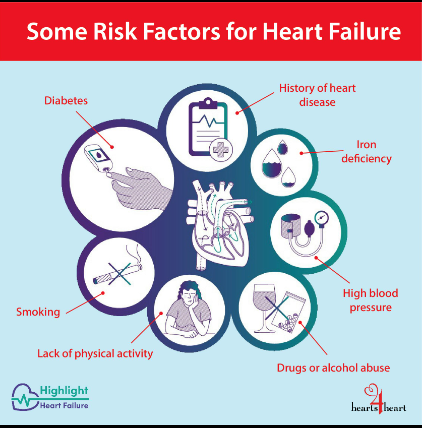Heart failure can sneak up on you
Lily Plass
29 June 2024, 3:40 AM
 Doctor checking blood pressure. Credit: Pavel Danilyuk
Doctor checking blood pressure. Credit: Pavel DanilyukHeart failure is a silent killer that often goes unnoticed, especially among patients in rural areas.
According to Hearts4heart, most Australians are overlooking the common red flags that may point to heart failure – Iron deficiency, erectile dysfunction, poor diet and infection..
People - and particularly men - in rural and remote areas are among the worst at ignoring the warning signs.
"Heart failure is the Cinderella of cardiovascular disease because it's not at the top of people's minds," says Dr Andrew Sindone, Director Heart Failure Unit and Department of Cardiac Rehabilitation, Concord Hospital.
"People in rural and remote areas don't see their doctor often enough and there's not enough access to specialists in the country. The hospitals often don't have the right equipment that are in the city."
Despite the name, heart failure does not mean the heart has stopped completely but that the heart is failing to meet the body's demands.
Heart failure also occurs when the heart muscle has been damaged, for example by a previous heart attack or an inherited heart condition.
Other diseases like diabetes, chronic kidney failure, chronic lung problems, and high blood pressure can also contribute to increasing the risk of heart failure.
Higher rates of drinking and smoking are also factors that contribute to higher rates of heart failure in the country.
"It's really important that people go and see their doctor to think about a checkup and heart failure," Dr Sindone said.
"The problem with heart failure is that it is not only a common but also a deadly condition. Fifty percent of people with heart failure are not alive in five years."
Cardiovascular specialists are often not available in remote areas which means patients have to go see their GP who might not have the right equipment to diagnose the disease.
Hospitalisations rate for people in remote and very remote areas for both men and women are higher than in any other areas.
Slightly more than 410 men per 100,000 in remote and very remote areas were hospitalised in 2020-2021 due to heart failure and cardiomyopathy, according to the Australian Institute of Health and Welfare (AIHW).
For women, the hospitalisation rate was slightly over 320 per 100,000 in remote and very remote areas.
In comparison, the hospitalisation rate for heart failure and cardiomyopathy was 258 per 100,000 people for men and 177 per 100,000 for women in major cities.

In 2017, there were around 15,500 hospitalisations and 5,000 deaths reported in regional NSW, according to the Mary MacKillop Institute for Health Research.
Hospitals in rural and remote areas often do not perform bypass operations, heart surgery, valve replacement, or the implementation of pacemakers, defibrillators, and other procedures for patients suffering from heart failure.
"I see patients from the country who travel three, or four hours for an appointment. It's important people get the right care in the right place at the right time."
There is however light at the end of the tunnel.
The blood test NT-proBNP will be available for free in GP practices in November. If the test results come back with elevated values that means heart failure is likely and the patient should see a specialist. Currently, the test costs $80.
To prevent heart failure Dr Sindone recommended regular exercise, maintaining a healthy weight, not smoking, and minimal alcohol consumption.
"It can improve your chance of survival and reduce your risk of hospitalisation."
Warning signs
Dr Sindone said heart failure can be difficult to diagnose because the symptoms are often non-specific.
Symptoms of heart failure can include:
- Breathlessness during minimal exercise, or when resting
- Sudden weight gain
- New or worsening tiredness, dizziness, confusion, or sadness
- Discomfort or swelling in the tummy or lower body
- Increased trouble sleeping
- Swelling of the legs, ankles, or feet
- Loss of appetite
- Dry cough
- Irregular heartbeat or palpitations
NEWS





